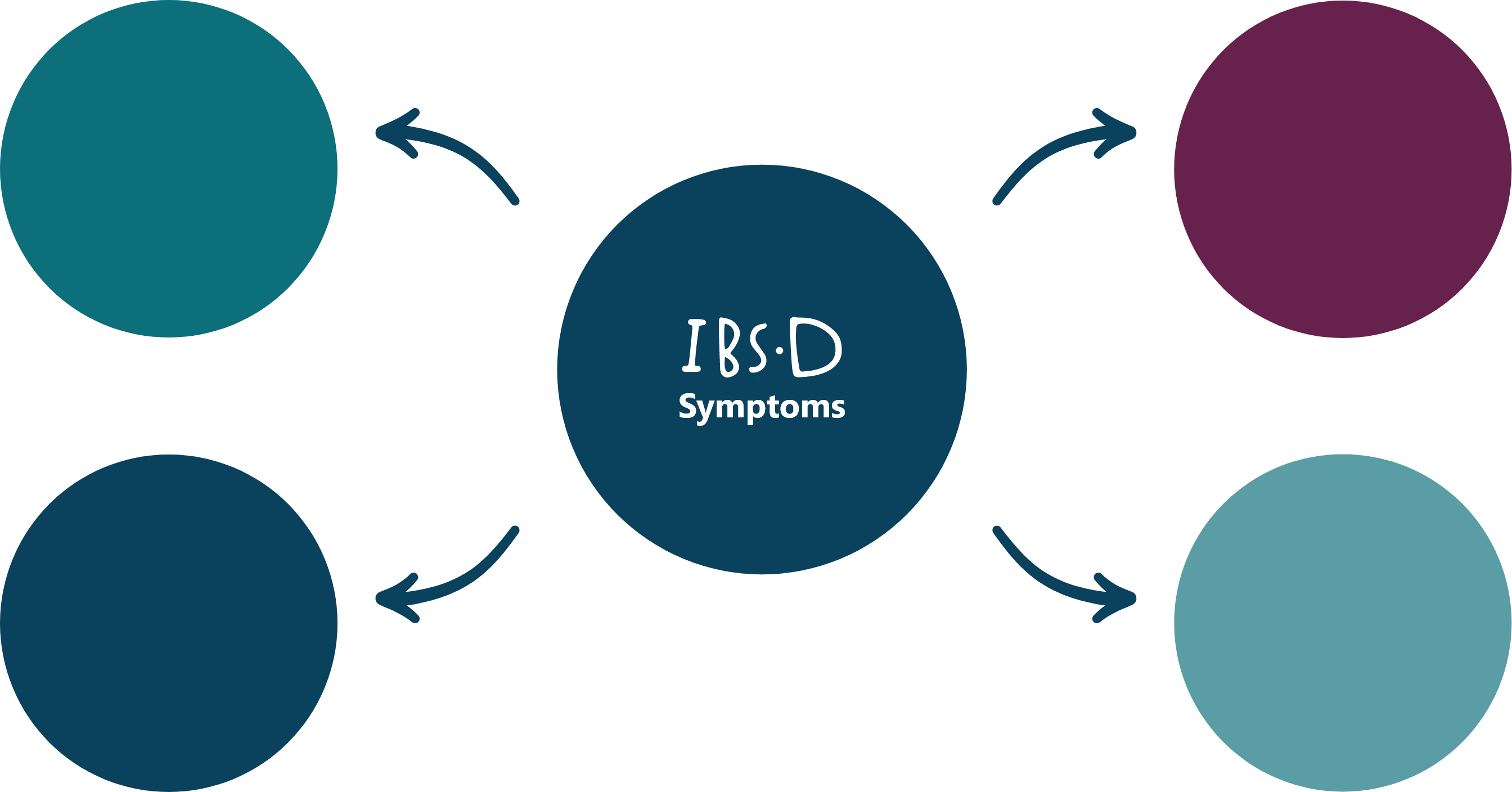Learn about a treatment option that may be right for you.
IBS-D IS A TYPE OF IRRITABLE BOWEL SYNDROME
Irritable bowel syndrome (IBS) is a common intestinal condition associated with unpredictable bowel movements that can change the way people live their life.
In people with IBS, the lower digestive system doesn’t work quite right, even though there may not be an obvious medical problem.
TYPES OF IBS
An estimated 13.7 million Americans suffer from IBS. In addition to stomach pain, people with IBS experience changes in how often they pass stools and how the stool is formed (or its consistency). There are certain changes in bowel movements that are associated with the 4 different types of IBS:
IBS-D
(diarrhea)
Most of your stools are loose and watery
IBS-D (diarrhea)
Most of your stools are loose and watery
IBS-C
(constipation)
Most of your stools are hard or lumpy
IBS-C (constipation)
Most of your stools are hard or lumpy
IBS-M
(mixed)
Most stools are a combination of diarrhea and constipation
IBS-M (mixed)
Most stools are a combination of diarrhea and constipation
IBS-U
(unclassified)
Bowel changes cannot be placed into 1 of the other 3 groups
IBS-U (unclassified)
Bowel changes cannot be placed into 1 of the other 3 groups
IBS-D IS A MULTI-SYMPTOM CONDITION
People with IBS-D often have multiple symptoms, and while they can change over time, the most common are:
Abdominal Pain
Diarrhea
Bloating
Urgency

Frequent stomach pain like cramping, aching, or sharp pains
Loose or watery stools
Production of excessive gas in the gut
Urgent need to rush to the bathroom
Are your symptoms adding up to IBS-D?


Not an actual patient.
Living with IBS-D now
Dealing with IBS-D can be challenging, nowadays. But you’re not alone. According to a Salix-sponsored survey, many people with IBS said their symptoms either worsened or stayed the same in a 12-month period.
- Almost half said that their symptoms have been more challenging to manage.
- 3 out of 4 reported that their symptoms of constipation, diarrhea, abdominal pain and bloating have not improved.
- The majority don’t take any prescription medications to treat their IBS-D.
Want to take the next step? Explore this IBS-D prescription treatment option.
Common IBS-D Myths
Discover a treatment option for adults with IBS-D.



